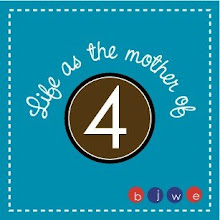“Recovery -- what does that even mean?” I read the question on a post and started to respond but soon realized I was writing the first paragraph of a position paper. And anything that long didn't belong on someone else's blog without the subtitle Guest Blog by LifeastheMotherof4. Thus I didn't click publish. I recognize that the question is rhetorical but something compels me to respond anyway because I’ve read several versions of the same question or statement.
What does someone mean when they talk about their child's recovery from autism? Clearly they don't mean their child is physically missing and they’ll find them if they merely step outside and holler out a name. Believe me when I say I try to be aware of where William is physically at all times and I doubt I am unique in my vigilance. Recovery has nothing to do with location.
Autism presents differently in different children. Some children have symptoms of ASD from birth, others develop normally then regress. Assuming everyone with ASD follows a similar trajectory or that all children must have shown signs that their parents missed through ignorance or denial is foolish.
Recovery has to do with regression, with the loss of ability. If a child never had a skill -- therapy and medical intervention is intended to help the child progress and improve their functioning. If a child regresses -- therapy and medical intervention is also intended to help the child regain that lost skill.
I’ve noticed an attempt to pigeonhole autism into a single experience. Some professionals and parents believe that a child must have shown signs from birth. If one believes that each child must always have been autistic, naturally recovery seems absurd as you can never recover something that never existed. If, however, a child had a skill and then lost it, it is natural to hope for and refer to a recovery or restoration of the skill.
I have watched regression. It is incredibly distressing to watch a child lose joint attention, sociability and, horrifyingly, even the ability to request a drink. When I talk about recovery for my son I remember his social engagement at a year and a half. I remember how he played with his siblings and how he pushed his way into any activity because he wanted to be with them. Now William has a friend he adores and I'm working to help him recover the same skill level of social interaction he possessed at 17 months. All of his therapy is designed to help restore and surpass previously acquired skills, as well as to acquire new ones.
“Recovery? He’s right in front of you?” . . . Is he? Is he right here? Well, physically, of course, he is. Emotionally, socially and academically autism gets between us. Our relationship lacks subtlety and emotional reciprocity. I have occasionally related to Shylock crying out “If you prink me do I not bleed?” – although, usually when William is pinching me. But at other times it feels as if we are more emotionally different than similar. He has either become so complete within himself or is so unable to reach outside of himself his aloofness sometimes seems impossible to breach.
It might be easier if he’d always been like this – adorable and adored . . . but lacking in social reciprocity, stimmy and turned inward. But he wasn’t. I am fully aware of how he changed and what both of us lost. I can see William separate from autism – and that’s a gift, albeit an occasionally painful one, but a gift none the less.





No comments:
Post a Comment